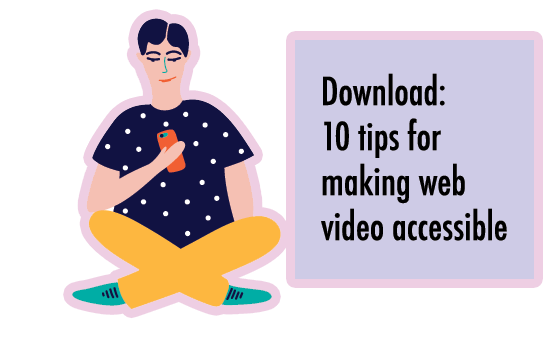What You Should Know About the European Accessibility Act (EAA)
Updated: August 12, 2019
The European Accessibility Act (EAA) establishes accessibility requirements for a number of key products and services to benefit individuals with disabilities and elderly people in the European Union.
The goal of the legislation is to eliminate the barriers that people with disabilities confront when accessing modern day technologies.
European Accessibility Act (EAA)
The European Accessibility Act (EAA) requires certain high risk products and services to be made accessible to individuals with disabilities and the elderly. The act applies to all the Member States in the EU, as an effort to create a more unified accessibility policy. States have three years to introduce the provision into their national laws and six years to apply them.
An Overview of the European Accessibility Act
The European Accessibility Act sets requirements for a number of products and services such as:
- Ticketing and check-in machines
- Computers and operating systems
- Smartphones
- TV equipment related to digital television services
- Telephony services and related equipment
- Banking services
- Audiovisual media services, such as television broadcast and related consumer equipment
- e-books
- e-commerce
- Services related to air, bus, rail, and waterborne passenger transport
The idea is to encourage companies to integrate accessibility into their development process – not have it be an afterthought.
The EAA defines what needs to be made accessible, but does not state detailed technical solutions for how products and services should be made accessible.
As stated by the European Commission’s fact sheet, the EAA:
- uses a set of common accessibility requirements for products and services in the EU
- creates an obligation for Member States of the EU
- uses the same accessibility requirements to define the accessibility obligation laid down in the existing EU law
- supports implementation of the UN Convention on the Rights of Persons with Disabilities
- ensures that all products and services complying with accessibility requirements will circulate freely in the internal market
- does not prescribe technical details to meet, but allows for the implementation and development of technical standards if necessary
- does not set obligations for all manufacturers and service providers, only for those selected on the list of products and services
- does not impose burdensome requirements by providing safegaurds or disproportionate burden and fundamental alteration
- does not amend existing EU sectorial legislation on accessibility
What Does this Mean for Video Accessibility?
The European Accessibility Act incorporates web accessibility in the text.
Online services must be made accessible to individuals with disabilities. In particular, websites and apps must be easily perceivable, operable, and understandable.
In order to make video accessible, it should include closed captions, audio description, a transcript, and play on an accessible video player.
Products that use video must also be accessible; for example, captioning videos on kiosks.
The most widely accepted standard for online accessibility standards is WCAG. You can read more about it in the blog, WCAG 2.0: The International Standard for Web Accessibility and Inclusive Design.
Who Does the EAA Benefit?
There are 10 million people with disabilities living in the EU; the European Accessibility Act sets to create a more equal landscape among popular products and services in the EU for all these individuals.
For example, ATM machines must include audio assistance for the visually impaired.
This initiative also creates new jobs for those with accessibility expertise, reduces barriers to entry in education, and creates a greater variety of accessible products in the market.
Businesses also benefit because they can reach new markets and offer easier cross-border trading among other EU nations.
This blog post is written for educational and general information purposes only and does not constitute specific legal advice. This blog should not be used as a substitute for competent legal advice from a licensed professional attorney in your state.











